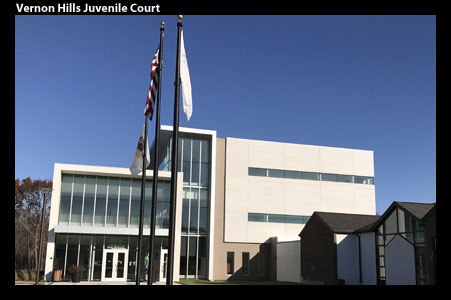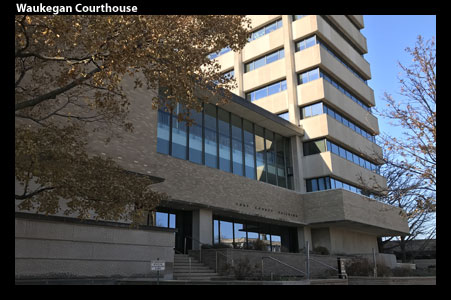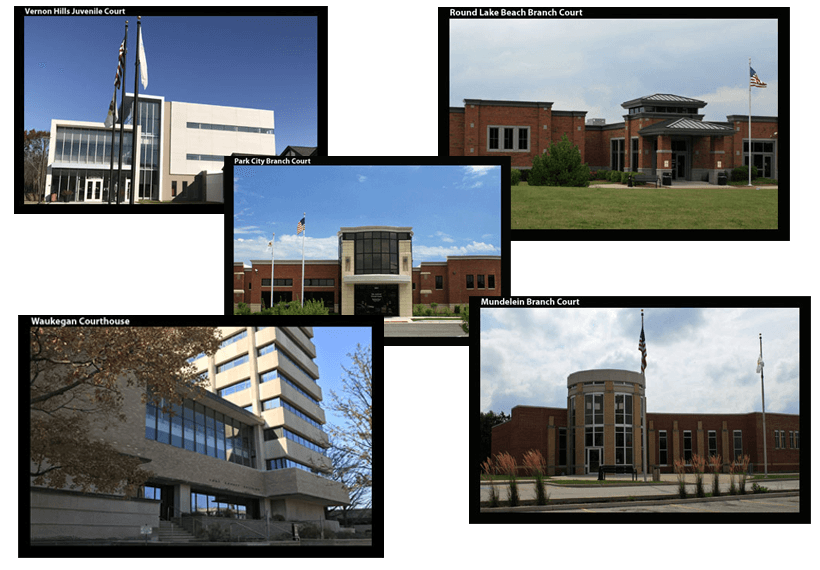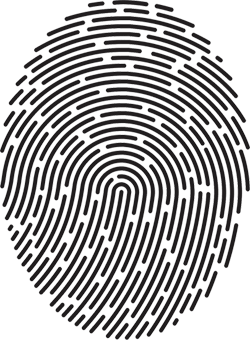Resisting & Obstructing Attorney Lake County, Illinois
Are you charged with resisting or obstructing a peace officer in Lake County, Illinois criminal court? Unless it's alleged a police officer was injured during the commission of the crime, resisting arrest or obstructing a peace officer is punishable as a class A misdemeanor offense.
The HoffmanLaw Office has nearly 20 years of experience with Lake County resisting arrest and obstructing a peace officer cases. If you work with us, your HoffmanLaw Lake County criminal defense attorney is going to understand the issues in your case. We're ready to put our knowledge and experience to work in your defense.
Issues We Discuss on this Page: Resisting Arrest Obstructing a Peace Officer Penalties
RESISTING ARREST: Experienced Criminal Defense Lawyer Defending Resisting Arrest Charges in Lake County Court
RESISTING ARREST: Experienced Criminal Defense Lawyer Defending Resisting Arrest Charges in Lake County Court
The criminal offense of resisting a police officer alleges you knowingly resisted the performance of a person you knew to be a police officer of any authorized act within the police officer's official capacity. See, 720 ILCS 5/31-1(a).
The overwhelming majority of resisting a police officer charges specifically allege someone unlawfully resisted their own arrest.
Common ways to be charged with resisting arrest include being accused of any of the following acts:
- Pulling away from the officer;
- Pushing the officer;
- Struggling with the officer;
- Going limp when the officer tries to handcuff you;
- Running away from the officer;
- Refusing to allow the officer to handcuff you; or
- Refusing to obey the officer's orders to put your hands behind your back.
When can the police arrest you?
Because the question often arises as to whether a police officer's decision to arrest someone was lawful or unlawful, it's worth considering what circumstances allow a police officer to make an arrest in the first place.
A police officer cannot arrest you unless he or she has "probable cause" you committed, are committing, or are about to commit a crime.
What passes for "probable cause" for the police to arrest you?
The courts have held probable cause exists if, at the time of the arrest, the facts and circumstances within the officer's knowledge are sufficient to warrant a prudent person, or one of reasonable caution, to believe, in the circumstances shown, you committed, are committing, or are about to commit an offense.
Even if it turns out after the fact the officer lacked probable cause to arrest you, if a reasonable police officer in the same circumstances could have mistakenly thought probable cause existed, then the officer's arrest of you still would have been lawful.
Conversely, if a reasonable police officer in the same circumstances would have known probable cause did not exist, then your arrest would have been illegal.
Resisting Arrest Usually is Charged in Conjunction with Other Offenses
Resisting Arrest Usually is Charged in Conjunction with Other Offenses
In most cases, the crime of resisting arrest is charged in conjunction with other offenses. This is because in situations where a person is charged with resisting arrest, the police already have determined they have probable cause to arrest that person for a separate and pre-existing reason.
It's when a police officer attempts to arrest someone based on probable cause and determines that individual now is resisting that the officer concludes additional probable exists to also charge resisting arrest.
This is why resisting arrest charges most frequently occur as additional "counts" or allegations in multi-count misdemeanor or felony prosecutions.
Obstructing a Peace Officer: Defending Obstructing Charges in Lake County Criminal Court
Obstructing a Peace Officer: Defending Obstructing Charges in Lake County Criminal Court
The offense of obstructing a peace officer is nearly identical to the offense of resisting a peace officer.
However, instead of alleging you resisted, the criminal charge of obstructing alleges you obstructed a peace officer's performance of any authorized act within his or her official capacity. See, 720 ILCS 5/31-1(a).
What's an example of obstructing a peace officer?
An example of the offense of obstructing a peace officer is as follows.
A police officer is engaged in a lawful arrest. A bystander is there at the scene.
The police officer orders that bystander to step back and not to interfere with the arrest. Instead of complying with the officer's request, the bystander intentionally places him or herself between the officer and the person the officer is trying to arrest. The bystander then tells the officer she can't proceed with the arrest.
Because the officer is performing a lawful act within her official capacity, namely, someone else's lawful arrest, the bystander intentionally interfering with that action will be arrested and charged with obstructing a peace officer.
If that bystander then allegedly resists his or her own arrest, he also will be charged with the offense of resisting arrest.
Penalties for Resisting or Obstructing a Peace Officer
Penalties for Resisting or Obstructing a Peace Officer
Resisting and obstructing a peace officer are class A misdemeanor offenses. Class A misdemeanors are punishable by a fine of up to $2,500 and by up to 364 days in jail.
Someone convicted of resisting or obstructing a peace officer will be required to spend a minimum of 48 consecutive hours in jail or to complete 100 hours of public service.
Is court supervision available?
A disposition of court supervision is not available for the offenses of resisting or obstructing a peace officer. See, 730 ILCS 5/5-6-1(c). Court supervision is a type of sentence in a criminal case that avoids entry of a conviction against the accused.
Since court supervision is not allowed, a conviction is mandatory for someone found guilty of resisting or obstructing a peace officer.
Is resisting or obstructing ever a felony offense?
If a person injured a peace officer during the commission of the offense, resisting or obstructing a peace officer becomes a class 4 felony. Class 4 felonies are punishable by up to a $25,000 fine and by up to 1-3 years in prison.
HoffmanLaw: Two Decades of Lake County Criminal Court Experience
HoffmanLaw: Two Decades of Lake County Criminal Court Experience
If you were arrested and charged with resisting or obstructing a peace officer in Lake County, Illinois, a HoffmanLaw Office criminal defense attorney can work toward building a strong defense in your case. We have nearly 20 years' experience working on misdemeanor and felony criminal cases in the main Lake County criminal courthouse in downtown Waukegan, Illinois.
Additionally, we defend clients facing resisting or obstructing a peace officer charges in the Lake County branch courts in Mundelein, Round Lake Beach and Park City. We have the experience necessary to make a meaningful and positive difference in the defense of your case.
 HoffmanLaw
HoffmanLaw HoffmanLaw
HoffmanLaw(847) 587-5000
 HoffmanLaw
HoffmanLaw(847) 587-5000
What is Resisting?
What is Resisting?
Knowingly Resisting the Performance
By One Known to You to be a Peace Officer
Of any Authorized Act within His or Her Official Capacity
Why Choose HoffmanLaw to Defend Your Lake County Illinois Criminal Resisting or Obstructing Case?
Why Choose HoffmanLaw to Defend Your Lake County Illinois Criminal Resisting or Obstructing Case?

Analysis.
The HoffmanLaw Office always is focused on the presumption of innocence. Building on this presumption, the HoffmanLaw Office performs a systematic and searching ANALYSIS of the facts alleged in your case. This intensive analysis exposes weakness in the prosecution's evidence and develops powerful defense arguments and strategies.

Preparation.
The HoffmanLaw Office strives to know completely the facts and law of your case. In criminal court, good results do not often emerge by chance. They come through intense PREPARATION that lays the groundwork for success. When you select the HoffmanLaw Office as your legal advocate, you team yourself with a philosophy of extreme preparation.

Results.
The HoffmanLaw Office views every time it appears in court with you as an opportunity to achieve RESULTS. Whether it is negotiating during a pretrial conference, cross-examining a witness, or delivering a closing argument at trial, the HoffmanLaw Office strives to be your best advocate at all times.
 HoffmanLaw
HoffmanLawDefending Serious Resisting and Obstructing Arrest Charges in Lake County Illinois Criminal Court
We are Here to Help
(847) 587-5000

Defending Juveniles Against Resisting & Obstructing Charges at Juvenile Court in Vernon Hills
Defending Juveniles Against Resisting & Obstructing Charges at Court in Vernon Hills
The HoffmanLaw Office also defends resisting and obstructing charges at the Lake County, Illinois juvenile courthouse in Vernon Hills.  Juvenile court prosecutions are governed by penalties, rules and procedures that often differ greatly from those that apply in adult court, including those discussed on this page.
Juvenile court prosecutions are governed by penalties, rules and procedures that often differ greatly from those that apply in adult court, including those discussed on this page.
Attorney Matt Hoffman of the HoffmanLaw Office has many years' experience with Lake County juvenile delinquency proceedings and "Petitions for Adjudication of Wardship." He is a former Lake County Assistant State's Attorney who used to prosecute juvenile cases in Lake County juvenile court. If your child is charged with resisting, obstructing or other offenses in Lake County juvenile court, the HoffmanLaw Office has the specific experience necessary to work toward an intelligent and effective resolution of the case.
Matt Hoffman is a former recipient of the Lake County, Illinois Juvenile Justice Award.


























